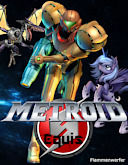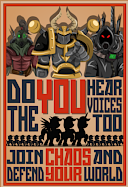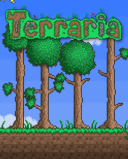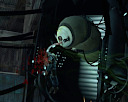Specialists are masters of their trade. This one just happens to be good with magic. And this is his story of how he overcame the bleats and grunts that is known as Equestrian to communicate with these strange ponies. And how he could show up Twilight Sparkle with his elemental magic.
(Hey my grammer sucks)(My vocabulary is poor as noticable with the appearence of the 'titter todder' because I don't know what THE $%@! it's called.)
(This ties into another story called 'The Twelve Specialists' and this is a rejected specialist that I've made. I decided to give him a second chance so I made this story for him. Tell me what you think of him.)
"Magic doesn't work that way. It only effects what you understand." -Spell Tome
(YOU DO NOT NEED TO READ THE OTHER STORY TO UNDERSTAND THIS.)













I freakin love this
Edit: Screw First
I think you mean a "teeter-totter," more formally known as a see-saw.
The critique that follows is something I don't normally do for the multitude of other stories out there with poorly-written descriptions, but the "titter-totter" remark caught my attention and got me to read the rest of your description. While it may sound shallow, or perhaps even unnecessarily harsh, the description told me enough about what I would find inside that I didn't even need to read the actual story to know exactly what sort of problems affected it. This is consistent with reader behavior in general. Actually clicking on the first chapter only confirmed my suspicions.
Allow me to qualify this with the fact that you are far from being the only one guilty of such literary indiscretions; these are all quite common in fanfiction as a whole, which is why only a tiny fraction of fanfiction ever actually becomes popular.
I could comment on grammar, punctuation, and sentence structure, but you're already aware of these issues, and to do so would essentially require re-writing the whole thing. If you really want to improve in this regard, there are plenty of free resources available, but it will require a lot of time and effort on your part. Even the sections on academic writing can help immensely with effective creative writing.
Now for the meat and potatoes.
In writing fanfiction, it is very risky to attempt an OC who is capable of overshadowing a canon character who has already been established as one of the best in his or her field; it's downright dangerous when the OC is not only specifically intended to do so, but is also directly compared to the canon character in question. Typically, this results in a variation of what is known as a Mary Sue, which is generally considered to be poor form when writing a story; in fact, it is one of the leading factors in a fanfiction being poorly received. It can be done well under certain circumstances, but only experienced writers ever manage to pull it off with anything better than mixed reactions from readers; even then, by the very definition of the concept, the character will typically cease to be a straight-up Mary Sue if it's been done well enough.
For example, towards the end of Allegrezza, there is a scene involving a highly skilled dressmaker in Canterlot who isn't Rarity. Her prowess and technique are described as nothing short of exceptional; the dresses she makes, without equal. However, in addition to being an original side character created solely for that scene, there are absolutely no comparisons drawn between this dressmaker and Rarity, despite residing within the same story universe. Within context, there's simply no need to draw any comparisons, and this is specifically by design. The effective description conveys enough on its own about just how good she is, without having to rely upon comparisons to any other character.
A character's abilities should speak for themselves; there's a reason why some canon characters are considered among the best at what they do, or are otherwise unique. To lessen such distinctive traits is to cheapen all of the characters involved, which only serves to break down the reader's willing suspension of disbelief. This is why alicorn OC's are almost universally frowned upon, as are most other OC's with outlandish color schemes and other features that don't fit in with the style of the show (or are otherwise inconsistent within an established story universe). A character is not made "unique" merely by having a competitive list of features, be they good or bad (usually, only good); rather, doing so only guarantees a position among the multitudes of other "competitively unique" characters out there just like it.
You can have a Jack-of-All-Trades (a master of none).
You can have an Ace of One Trade.
But you cannot introduce a new "Ace" that bumps down the established definition of an Ace down to a Jack of One Trade.
That would just be winning Rock, Paper, Scissors by using a raygun that can beat all three. It's inherently unbalanced, unfair, uninteresting, and unfun for everyone.
It's a lesson that most people fail to actually learn from, even if they think they get it. You're far from being the only one.
793190
...C-can you summarize that? O.o
I think when I was talking about 'Cannon' I was refering to my own story? umm what? hold on um...can you tell me whether or not I suck? Because I can't deside whether or not you're trying to help me or just shoot me down in some way.
798579 It's a bit of both. Basically, this story isn't very good at all. The character isn't much of a character; what he is and his reason for existing in the first place is something that people do not enjoy (hint: "And how he could show up Twilight Sparkle with magic." is a big part of the problem). You haven't yet figured out how to come up with an OC that people would actually want to read about, it seems. Looking at some of the other "Specialists" stories you've written, they all fall into the same boat. The characters are not necessarily all bad for the same reasons, though; however, they do all seem to be rather bland and uninteresting. The differences between them are trivial and uninspired. If you clicked the link to see what a Mary Sue is, and read through the article, you'll understand a bit more as to why people hate such characters.
So yes, I guess I am shooting you down in that regard, but I was trying to do so lightly. Just because you're not good at it now (yes, I guess you "suck"), doesn't mean you can't get better at it in the future (I'd rather help you get better than make you give up writing). The post was basically trying to explain exactly why what you're doing isn't a very good idea. Given your response, though, I have to ask: is English not your native language? I'm sorry if it's a bit hard to understand what I write, I have a lot of difficulty with trying to keep things simple.
For help improving your writing (grammar and sentence structure), you'll need to work hard. I suggest signing up for a free account here, and taking all of those quizzes to figure out what you need help with. There is even a section devoted to understanding English as a second language, which might be a good place to start even if it is your native language. Each answer you give will tell you exactly why the answer you chose was right or wrong. It will take a lot of time, but it will help make you a better writer if you read the explanations. All of the resources on that page are free, you don't need to buy the textbook; you just need to make a free account so it can keep track of your quiz scores. This website is another free resource I find to be very helpful with learning and understanding writing concepts; I've been using it myself for the better part of 10 years now. Even though these websites tend to focus on writing essays, even the sections that focus on Academic writing can really help when writing stories; writing good essays and writing good stories have a lot in common.
For improving the actual stories you're trying to write, I suggest spending a lot of time on TV Tropes learning about different types of characters and story elements so you can build better original characters to use in your stories. A good way to do this is to take characters and stories you already know from TV, movies, and books, and try to figure out what "tropes" they use and why; each trope has a long list of examples to help better understand how it's used.
I'm sorry, I don't know how to make it any simpler than this while still trying to help you.
798748
Thank you.
English is my first language but when I was young I had. (of lack of better words) some sort of reading impediment. I remember in first grade that I couldn't understand the concept of puting 'spaces' between words. Or I just ignored the reasoning behind it so i could write faster. Later on i learned to read a lot better with a tutor. That's the best I can do with explaining why I'm bad and such. It's a merical that I found an interest in 'writing' on fimfiction at all! And frankly I enjoy it :D
Thanks for the links they will help.
798807
"Thank you. English is my first language, but when I was young, I had a lot of trouble with reading. In first grade, I didn't really understand the reasons for putting spaces between words, and I tended to ignore them so I could write faster. Later on, a tutor helped me learn to read a lot better. That's the best I can do to explain why writing is difficult for me. It's a miracle I even got interested in writing fanfiction for FIMFiction at all, and quite frankly I really enjoy it! Thanks for the links, I'm sure they will help."
FTFY (Fixed that for you) for direct comparison. By the way, I commend you for taking the spell-checker's advice for using "a lot" correctly; many people don't even realize that "alot" isn't a real word, and that "allot" means something else entirely.
In response: You're very welcome! It would serve no purpose to give an honest, negative opinion of your work if I did not also provide the reasons why and the means to improve upon it.
A simpler translation: "It's pointless to say something sucks without saying why and how you can make it better." This simpler version gets the point across just fine; but the original version is much more precise, much more interesting to read, and the way it's written implies much more about my intent. It just doesn't feel right to me when I try to write it more simply, even though it says the same thing and is just as correct, even though it's less formal.
Think about what Twilight said in the first episode: "…that we are on the precipice/threshold/brink of disaster," = "…that something really bad is about to happen!"
It was through 7 years of completely insane English teachers in middle school and high school that I learned how to write the way I do. It also takes a lot of understanding of how other people write when you're reading their work. The more you read things carefully and figure out how they put it all together, the more sense it makes in how to put things together yourself. Of course, that doesn't mean I don't still make mistakes sometimes; the ones I make just tend to be a bit more technical and easier to overlook.
799245
LOL its ok I know alot isn't a word. but hey were you or are you in AP english? Cuz if you didn't get in AP engilsh I will kill off Fluttershy...Ok that was a little brutal :o
Kill off Rainbow...(Again)

I love Rainbow :D
Its easy to get her to go off on her own and end up dead :D
She's just built to cause as much disaster as Twilight with her...Eugh...interdimentional spells
Yea I hate to start a story off like that. I understand why because its an easy explanation but ITS WAY TO SIMPLE. I would rather have the human go to the ponies because I find that much cooler...Not that it has anything to do with our conversation
(What the fuck did i just trail off?)
799245
oh wait you weren't GOWAHWHAHWLJFLKASD
Yea I did take spell checkers advice :D
Yea I just had to reread your comment to figure it out
799540 Yup, I took "honors" English for the first two years in HS, then AP English Literature junior year, then AP English Language senior year, since that was the course progression they offered. I was still in middle school when we had to read The Odyssey, a handful of Shakespeare's plays, and other works of classic literature; having to learn how to read such old forms of writing and actually understanding them was a challenge that really helped in the long run. All that said, my college doesn't accept AP English credits, so I still got stuck taking English Composition. It's all good, though; it's making me go back over the actual definitions and rules of composition, rather than relying on gut instinct and experience like I've done in the past. The hardest part about this course for me, though, is that our target for all of our papers is "only" 250-500 words. My first comment to you was longer than that.
That website with all the quizzes is the companion site to our textbook, which is an amazingly detailed and well-organized resource, but it costs $65. The Perdue OWL website was what I was introduced to back in middle school when we first started having to use MLA formatting for our papers, and it's also been kept fairly up-to-date since then.
You can see how all of that training ruined me, though. It's very hard for me to have an actual discussion online without typing out 500+ word posts. Now if only I could do the same to meet the minimum length requirements on some of my technical papers! (They can be very, very long.)
Being able to write well is a very important skill to have, especially once you enter the workforce; effective communication is key. I don't know what grade you're in right now or if you've already graduated, but either way I hope you take this opportunity to study hard to improve this vital skill set as best you can. As I said before, it will take a lot of time and effort to work your way through all of that material, especially taking all of those quizzes (and I do hope you take all of them!). Once you do, though, the payoff will be well worth it, whether it be an improvement in your grades (not only in English, but in any other class where you need to write a paper) or an improvement in your suitability for employment.
Fun fact: My father has both my mother and me look over and edit the monthly client newsletters for his company…though he certainly wouldn't tell his colleagues that! I even caught him when he was sending a revised newsletter to his co-worker for further feedback. The way he worded the email seemed fine at first glance, but I had to warn him what it actually implied was that he was giving free reign over any future revisions to his co-worker, when what he intended was only to ask for further feedback and suggestions. The specific wording of just one sentence was the difference between keeping control over the final document his clients would see, and potentially handing it off for someone else to do with as they saw fit, whether he agreed with the changes or not. That is why effective writing skills are so important; little things can make a huge difference in understanding.
800029
LOL shit dude. writing sounds a lot like art right now. Art can be anything but just little details can mean an entirly different meaning to the peice in question. just a simple angle on the head could represent sorrow or pride.
Frankly I don't want to get into writing. More as a past time activity for me. Though I will check out those links to see what I can learn from them.
Actually I more try to treat my writing like art rather than a story :/ I rely on people's imagination to fill in the faces of my text. You notice the lack of words that represent who's talking in some? That's because I'm using a pattern to show who's talking. Twilight and Rainbow to Twilight and Rainbow without saying who's who. Also I rely on the dialog to show who each character is as well. Like for example.
"That's mighty fine sugarcube."
We know that's applejack. So why say so when the messege is clearly already sent?
To be honest I think I'm clever with doing this. It allows me to continue conversations between characters before forgetting what they are talking about and having to go back and reread. Though the only problem with this method I use is that sometimes when I want to portray movement It ends up sounding like.
They walk...
dialog
dialog
they're there.
Leading to a very VERY boring scene...GAAAAAAAAAW I hate that. But alas it is what I have to work with for now :/
I know no other writing method and I sure as hell won't take on that...Eugh pragraph form
Not like your paragraph form but when the diolog is in the paragraph. That is good for giving details in the scene but it will take time out of the interesting conversations that characters have with each other. In real life people talk A LOT to each other after a sit down. especially women! So I find it important to us my writing style to allow for these coversations to come to the front and be noticed by EVERYONE because that is the story. My plot requires character involvement with another character. like how Rainbow is forcibly intimatly connected with Spell Tome. This forces conversation between them to an all time high because she becomes his translator. (You may not know that if you haven't read it) Eventually the stress will be expressed by Rainbow Dash and then...PLOT! That's all I'll say for what I have planned and why I'm doing what I do. Any more detail could reveal too much of the story to those who care.
So yea I believe I'm good when it comes to writing stories...Ok well that was more of an attempt to impress you
792838
D:
B-b-but first post
Warning: Incoming wall of text!
801941 Well yes, that's all true enough. Writing is an art.
That way of formatting dialogue is fairly common practice for the reasons you provided. When done properly, the reader can implicitly understand who is speaking, and it actually helps improve clarity. You'll find in those writing resources that, when writing dialogue, each time a different character is speaking, it should be in a new paragraph to denote a shift in attention within the scene. Writing multiple characters' dialogue within a single paragraph is indeed considered poor practice. However, when a single character has a lot that they need to explain verbally, not just for the other characters but for the readers as well, they just might have to go on speaking for several straight paragraphs.
However, you shouldn't rely too much upon having people's imaginations fill in the blanks you left behind. Show, don't tell. You are doing okay with showing sometimes, but more often than not, you're not giving enough information to actually paint the mental image you intend to convey to the reader. Of course, that requires that you even have a mental image of what's happening yourself. Good description creates immersion, which draws the reader into the story. The reader shouldn't have to imagine a scene from scratch. The description gives the reader the information they need in order to build the scene from ready-made components. Ikea doesn't expect you to go out, chop down your own wood and shape your own pieces before building a chair. They provide the pre-cut pieces and assembly hardware, and all you have to do is unpack the pieces (the description) from its flatpack box and then assemble it into a good-looking, sturdy chair (the mental image).
Try listening to A Prairie Home Companion, a radio show on NPR that airs on Saturday nights. When listening, you might notice the way in which the characters speak help a lot to convey mood and expression, but this is due in part to being greatly exaggerated for that exact purpose. They will sometimes subtly remark upon what another character is doing, or even outright ask them directly, even if it may have been obvious if we could actually see them doing it. Since they can't directly rely upon visuals to convey their stories, they have to use verbal intonation and clever descriptive tricks to paint the mental image.
In writing, you have the exact opposite problem. You don't have the ability to convey mood through sound and intonation; it's very much a visual medium. Text formatting and punctuation are visual tools that, when used properly, can help to convey emotion and tone; but they can only take you so far by themselves.
Even when people sit down and talk a lot, there is still a lot more going on besides just talking. If you ignore everything they're talking about, what are they actually doing? Try watching a sitcom without sound or captions. Watch what they're doing when they're just "sitting around, talking." Try to "read" their physical expressions and reactions (both facial and full body), the subtle movements they do that help them try to convey their point. A good actor does more than speak their part well. Acting is so much more than just speech.
Take Johnny Depp, for example. Captain Jack Sparrow is so much more than inane rambling and witty quips, and Willy Wonka is not merely defined by his curiously enunciated speech and disregard for what is considered to be socially normal and acceptable. The way each character carries themselves as they move about and perform actions says so much more about the character itself.
Unlike in comics and manga which can use pictures to show nearly all of this, you actually need to describe them with words, as if you were actually drawing comic panels by describing them through writing instead.
"Frankly I don't want to get into writing. More as a past time activity for me."
You may remember when I said, "Being able to write well is a very important skill to have, especially once you enter the workforce; effective communication is key." Creative writing (storytelling) as a hobby is a good way to practice, but you can't disregard just how much being able to write well can impact your future, no matter what you do. If you can write well, you can communicate well, not just in writing, but in speaking. If you can't communicate well with others, you'll have a hard time with work no matter what you do. Being able to write well helps you to better organize your thoughts and ideas in your head, and helps you figure out how to better present them to others (whether it be in written or spoken form) so that they can better understand what you're doing or what you're thinking. A good idea is useless to others if no-one else can understand what you mean by it. Almost any sort of office/desk job will heavily rely upon effective writing. Employers will give much more thought and consideration to a well-written job application and resume than one that is poorly written, even for jobs that don't require much writing at all. Being able to write well can make you much more attractive as an employee, because it means you can communicate well with others. Of course, it's a two-way street. You have to be a good listener, and be able to pick out the "subtext," or the meaning behind what people are saying; being good at reading also helps immensely with this.
To settle for less usually means to settle for menial, low-paying jobs in retail or food service. There's nothing wrong with taking those jobs as you work your way up from the bottom (like working your way up from the menial position of a cashier to the prestigious position of regional manager, franchise owner, business partner, etc.), but you shouldn't settle for sitting on the bottom rung for the rest of your life. Being able to read and write well unlocks opportunities; that's why we have public education in the first place. Certain groups of people used to be controlled by being deprived access to a basic education, being deprived of learning how to read and write and do math; this deprived them of the ability to better organize their thoughts and ideas and share them with others, which in turn hindered and discouraged attempts at breaking free from the control of their "superiors." Nowadays, people are still socioeconomically affected by the quality of their education (or lack thereof), but many more people now have access to the resources needed to take their education into their own hands and improve upon it for themselves.
805905
Yea I haven't really noticed the lack of detail IN the dialog that I write. You bring up an excilent point with the conversation thing...Actually just by reading your paragraph comment I feel smarter.
Thanks for pointing out my lack of detail where it is important because most of the time I don't really think of it. I try to add detail yet my experience and skills are just not honed enough at the moment to do anything drastic with my stories.
Oh hey based on your opinion does first person work better with discription of the environment than third?
Because first person you can add your characters commentary to the environment that gives you an idea of the area while being entertained. just giving little details again but you get what I'm going for right? "How shitty this toon tree looks with its fucking retarded redundancy in the fucking redundent forest. THESE GOD DAMN VINES ARE ALL UP IN MY GRILL! OH SHIT A PATH!"
Then there's third person. "This guy passes through the overgrowth with a great amount of difficulty. everything that seems to be growing off a plant finds a place on his body to latch onto making his gruling strugle to forge ahead that much more difficult. It was several moments before he found what looked like a path...
Wait scratch that third person is awesome :/ Well at least with my examples that is...Wait am I doing better with my third person example than I am in this story?
807391 See? It's all about exploring the possibilities! Whether a first person or third person description works better is entirely situational.
This lesson: Perspective in a Narrative
Sometimes, a first person account can offer a unique perspective both of the situation and the way the character perceives things. However, what they can describe is inherently limited to what they can perceive, and is also dependent on their state of mind. This is sometimes referred to as the "Unreliable Narrator," which can sometimes work their own opinions and prejudices into the narration, and can give incredible depth to a character when done well. One of the best examples I've seen of this is in First Pony View, which as the title implies is told entirely in the first person, and sometimes it is evident that the way the protagonist sees things is not necessarily the way they are. Also notice that the description instead uses second person to draw the reader in by asking thought-provoking questions to raise their curiosity (though this is a different subject matter entirely)*. Another good one is the revised chapters of Through The Eyes of Another Pony, which in terms of the story, is sort of on the opposite end of the spectrum from FPV even though both are human-as-a-pony fics.
One thing to note is that the time frame of the narration can change the way it feels. While it is often told in the past tense, just how far in the past can change the character's perception a bit. If it's a few seconds or a few minutes in the past like FPV, the narration is much more reactionary, much closer to what the character perceived as things happened:
I sat there, beaming with pride at my very first feat of magic.
"Having fun?"
I jumped in surprise at the mocking tone, turning slowly to face the owner of the harsh, sinewy voice: a shadowy figure, who had silently entered the room when I wasn't looking. I stared at the intruder in shock, its glowing, green eyes staring back at me. This couldn't possibly end well.
When it's an undetermined amount of time much farther in the past like the original version of TTEoAP, the narrator has had more time to evaluate what actually happened and can provide a slightly broader, more thoughtful narrative that can take hindsight (and thus, an opportunity for self-criticism) into account:
Of course, I was far too busy grinning like an idiot at having performed my first bit of magic to have noticed a shadowy figure entering the room behind me. I can only imagine the mischievous smirk that must have adorned its face as it made itself known, not that I would have been able to see it through the shadows, though I probably would have seen its glowing, green eyes.
"Having fun?"
The harsh, sinewy voice startled me, a sense of mockery evident in its tone. I wheeled around to face the source of the teasing remark. Once I locked eyes with my uninvited guest, I knew things would only get worse.
Third person allows for a much broader narration style that is not limited to what the character perceives. It allows for a more objective perspective, doing more to paint the scene for the reader as if they were watching a movie. There can be more detail that a character might be too distracted or emotional to notice or comprehend.
A character who is thrashing about in an attempt to escape from a trap is going to be much more focused on the sensation of pulling his limbs free from the rough vines that tangled around them, his panicked thrashing about causing a burning sensation on his skin to slowly evolve into a blinding pain as a multitude of tiny pricks started to pierce his flesh. He going to be too distracted with everything he was seeing, smelling, hearing, tasting, or touching to realize the actual cause of the pain, and was making too much of a racket himself to have heard that rustling noise in the bushes beyond the vines.
From the third person perspective, we can see that in his frantic thrashing about, the vines were covered in a multitude of small thorns, glistening with poison. The thorns were tearing through his robes and piercing his flesh, causing him to cry out in pain as small trickles of blood and poison trickle down his skin, beginning to soak into his tattered garb. As readers, we might have the ability to peer into a character's mind to see what they're thinking, or we might not. We may or may not get a more detailed description of what the character physically perceives, but we have that option in an "omniscient" narrative. We might even have one option independent of the other, gaining only partial insight into the character's condition. Or, our focus can shift instead to the creature that was cautiously approaching to investigate the source of the shouting, at first surveying the situation from the relative safety of a nearby bush.
As readers of the first person, all we know, all we can perceive, is what the character himself knows and perceives. It can be powerful and deep, making it easier to add greater depth to a character; it places the reader on the front lines with the character, bringing the reader more directly into the experience. But it can also be restricting at times, not that that's necessarily a bad thing. Sometimes, having such limitations while writing can help you keep better focused, preventing you from getting too distracted by other things that don't directly affect the narrative when things get a bit more complicated.
The reader would not have known much of anything about this creature until the main character had finally escaped the vines, only to then pass out, and be awoken hours later by the creature that has taken to tending to the character's wounds; the creature could then recount how he came across the character struggling in the vines, unsure of what to do, until the character escaped and blacked out, at which point the creature dragged the character off to a better sheltered area and began collecting herbs and berries to help heal the character's wounds. We might even have a complete shift in the narrative to experience what transpired from the creature's point of view, including a bit more detail and insight than if we were merely listening to him telling the story; once he was done, though, the focus would be shifted back to the POV of the main character, who had been listening to the creature recounting his tale, though likely not from the creature's exact POV as the reader had seen it.
In the third person, the reader would have already observed all of this as it happened, and the creature's explanation to the character could instead be summarized in the narration; while the creature may have actually told the character the whole story, the reader already knows the story and doesn't need to hear it all again through dialogue. Incidentally, this can free up the reader's focus for other things to be occurring while the creature and character are preoccupied, either right nearby or farther away. They could even get interrupted. They could have been interrupted in the first person as well, which could then lead to the creature's story being left incomplete to both the character and the reader, which could be used to add a bit more tension to the situation as the reader wants to hear what happened next. At the same time, this would have happened much more unexpectedly than in third person, were instead instead of being completely shocked or surprised, we could have known they were going to be interrupted (but not necessarily how or by whom), which would instead have built up our anticipation leading up to the interruption for the reveal.
Having the additional freedom afforded by the third person can be liberating, and can help make things easier when dealing with a wider range of characters and actions going on in a given scene; it can give a grander scale where the reader can be much more aware of what's going on. It also allows it to be told more objectively than when told by a character with opinions, prejudices, and a flawed/limited understanding of the scene (not to say that these are a bad thing; they're really good when done right). However, it can make it easy to make a scene too complicated; being able to jump around and detail too many things happening at once can make it harder to understand what's going on if you're not careful.
*I have to confess that I mention this mostly because I was the one to re-write the description as it is now, including the use of colors to provide emphasis on key words. The author had expressed concern that the original description didn't do justice to the otherwise excellent fic. He was right, of course; the original description was a mess of words in awkward sentences that only vaguely suggested what the fic was about, written only after the first chapter and before the author had a complete idea of where he was going with it. I really enjoyed his story, and felt it deserved to get more attention, so I offered help with the description. I don't know how much it actually helped with getting more views, but it certainly makes it more appealing to someone just clicking on a link to the story.
815235

Do you have any idea how stressful it is to talk to you?
Your wall-o-text orbital cannon of skull fuck BioChemicalWolfGear's self esteem is just...super effective!
Gaw give me about an hour to come back and read it
WORDS OF ENCOURAGEMENT
th06.deviantart.net/fs71/PRE/i/2011/171/c/5/twilight_sparkle_poster_by_kamikazedelbvh-d3jh69c.jpg
We now return you to your regularly scheduled programming.
…And now you know why I find it so difficult to get my English assignments down to 500 words. And why the professor has a word count limit in the first place.
Don't use "and" to start a real sentence. It can work in conversation, but it should otherwise be avoided.
817877
http://www.youtube.com/watch?v=fbsXev8Lkr8
...I win
Hold on a tick
792838
AS AUTHOR OF THIS STORY I ORDER YOU TO CLAIM FIRST!